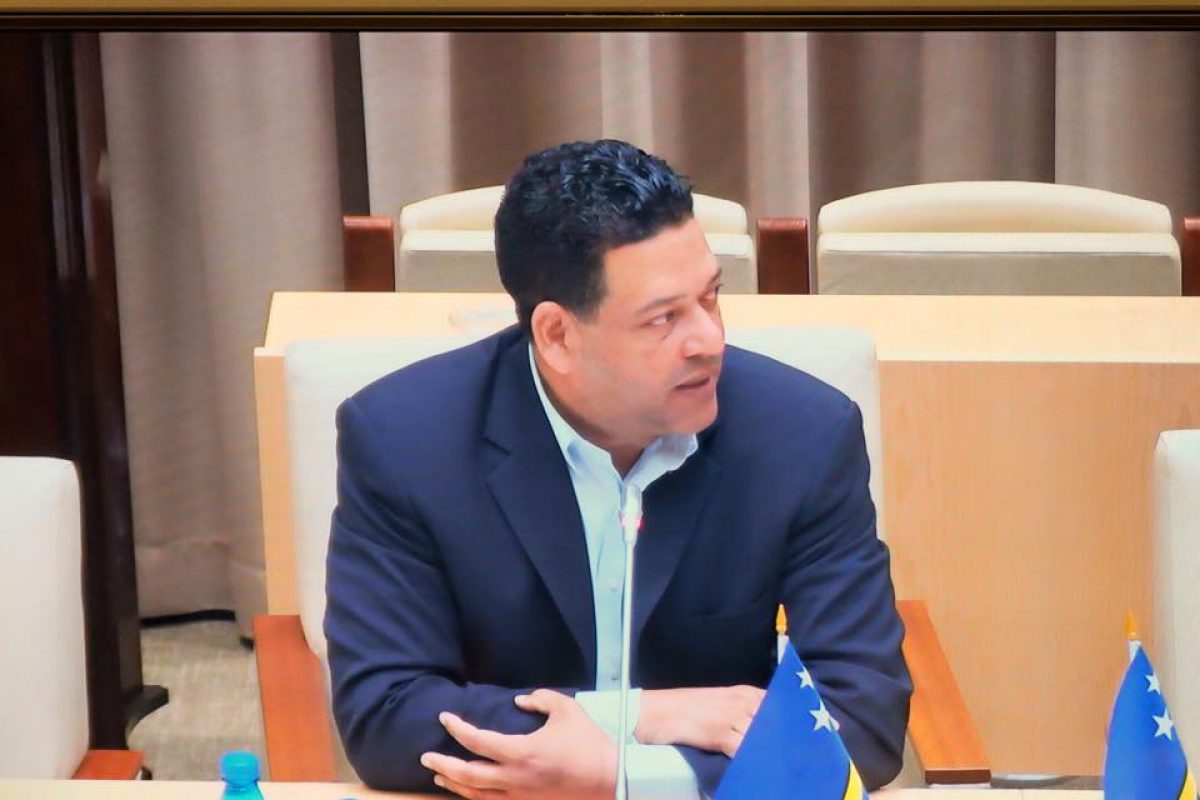Remember the Curaçaon left-wing populist politicians who flocked to Venezuela on Chávez’s plane to praise his ‘revolución’? Remember how they, together with some union leaders and opinion makers spoke wonders about Chavismo? Still clearly I remember how in 2011 a Member of Parliament of Curaçao picked up the Venezuelan Consul-general and did a 360° spin with her in the Parliament building just before the opening ceremonies of a new Parliamentary year. Yes, love was still in the air. Do these people who sanctified the ‘Venezuelan model’ owe us an explanation today? Just about all of the earlier disciples of Chavismo here in Curaçao have maintained a conspicuous silence in the face of the Venezuelan tragedy. Those who do speak up, rather than apologize for the Chávez-Maduro dictatorship, blame collapsing oil prices for the country’s fate. However these charlatans fail to explain why fellow OPEC member Indonesia has not seen similar unrests, but surprisingly fortified its young democracy during the same period Venezuela took a turn for the worse.
The legacy of the Venezuelan model reads like a to-do list on how to become a failed State. Today Venezuela has the highest inflation in the world, 678.60% while its economy will contract in 2017 with 11% (Forbes). Our southern neighbors have climbed the ladders of Transparency International lists as the only country in the Americas among the world’s 10 most corrupt. The country’s economic crisis takes heavy toll on public health, with infant death rate up 30%, maternal mortality up 65%, and malaria cases up 76% in 2016 according to statistics published by the Venezuelan government. Currently more than 450 investigations into human rights violations have been opened and there are 444 political prisoners in Venezuela according to Luis Almagro, secretary general of the Organization of American States (OAS).
If there was anything left of Venezuela’s democracy it was taken away by the Venezuelan president, Nicolas Maduro, who held a fraudulent election last weekend creating a new Constituent Assembly consisting of 545 seats, all filled with candidates hand-picked by Maduro’s party. The Constituent Assembly is empowered to rewrite Venezuela’s constitution, expel members of the opposition from the current National Assembly, and consolidate all executive powers. To add insult to injury, Mr. Maduro had the two most important opposition leaders arrested and sent to a military prison.
What should we do? I hope that the world sends a clear message that the results of last week’s elections are not going to be recognized. As many as 40 countries, including the European Union on behalf of its members (i.e. also The Kingdom of the Netherlands) have already announced they will not accept the Constituent Assembly. I’m unsure at this moment whether the Venezuelan people should be slapped with sanctions that could worsen their already dire situation. History also teaches us that while dictators can be removed from abroad, it is impossible to impose democracy from abroad. The end of dictatorship in Venezuela will depend on internal Venezuelan pressure. The best way to keep the pressure on Caracas is for other countries to decisively act in defense of democracy. Precisely because the world has allowed the situation to deteriorate incrementally, but consistently, we are at the point where we are today. Very disappointing was the fact that a few weeks ago fellow Caribbean nations St. Vincent and the Grenadines, Dominica and St. Kitts and Nevis voted against the OAS resolution to condemn Maduro’s intentions to convene a Constituent Assembly that would have required a 23-vote majority to become mandatory. I guess these islands’ love for cheap Venezuelan oil trumped doing something about a full-blown humanitarian crisis.
When it comes to Venezuela, Curaçao has always remained neutral and has abided by the non-intervention rule. Yet non-intervention should not be used to simply do nothing. I believe that the Government in Willemstad should express its regret that more than 100 people have died in the most recent unrests; its deep concern about the detention of two opposition leaders by Venezuelan authorities after Sunday’s elections; urging the Government in Caracas to immediately release all those being held for exercising their rights to freedom of peaceful assembly; appeal to all parties to refrain from the use of violence and voice its desire for a democratic solution. I also make a similar appeal to our local non-governmental organizations because democracy is a matter of all of us, not only the government. I know that we have strong historical, economical and often family ties with Venezuela. That’s a fact. However, these relationships should never be at the expense of the human suffering that is taking place in Venezuela owing to the fact that some people want to quell democracy.


I do agree 100% with mr. Rosaria, it is about time that also Curacao also takes a stand in this most despicable way the Venezuelan government is treating its own people.
LikeLiked by 1 person
Asi se habla Sr. Alex Rosaria.
LikeLike
We should never be afraid of denouncing those who are victims of these crimes against democracy. Thanks for caring.
LikeLike
Well said. Chavismo is disaster.
LikeLike
I have a lot of respect for you Mr. Rosaria. I appreciate that you speak your mind about the chaos in Venezuela.
LikeLike
Well said Mr. Rosaria. I agree that doing nothing is not an option nor voting only not to jeopardize the continuing of getting cheap oil. The Venezuelan neighbors have the most to lose if a full blown civil war starts.
LikeLike
Venezuela has taken a tur for the worse. Hopefully Maduro will see that accumulation ofower and the dictatorship that he so much is longing for, will not make the situation of the millions of ordinary people who are suffering every day any better.
LikeLike
Bon artíkulo. Hopi bon skibí. Bo tin rason den bo ponensianan. Nos no por keda skonde tras di neutralidat
LikeLike
Good story, Yes, where are these politicians who were so much in love with Chavez?
LikeLike